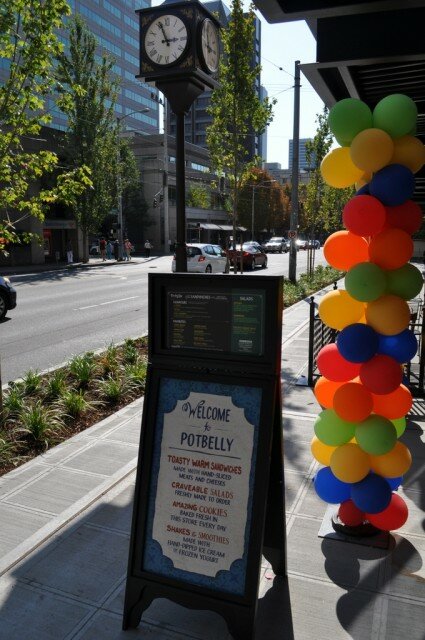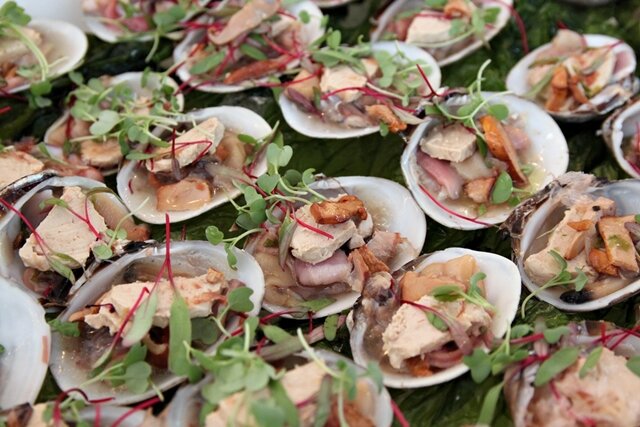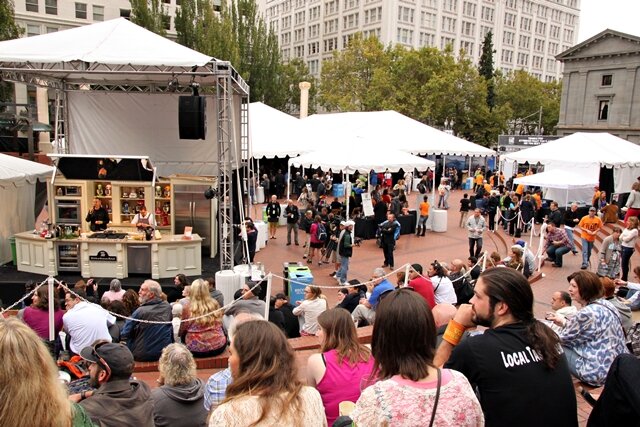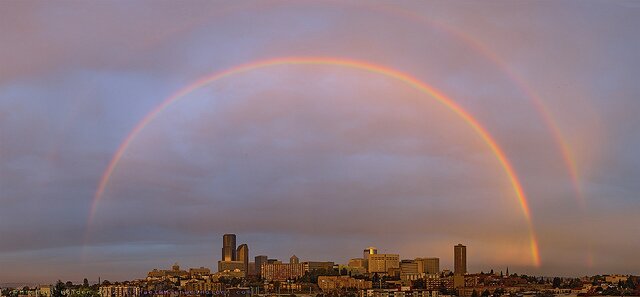It’s been a week since returning from the four-day festival/feeding frenzy known as Feast Portland, and I find myself reflecting on the easily lost words that followed the colon in the title: “A Celebration of Oregon Bounty.”
The program guide described Portland and Oregon as “living food festivals,” and that feeling was apparent throughout the long weekend. Aside from the festival happenings, attendees found themselves surrounded by a wealth of culinary options, including quality coffeeshops, bakeries, breweries, restaurants, and—separating Portland from Seattle, at least for the time being—pods of food carts.
The bounty of eating and drinking places in Portland and outlying areas is due to the bounty of building blocks in the state of Oregon. The land provides a wide array of fruits and vegetables, including grapes for the wine industry and hops for the breweries. That same land is suitable for raising animals to produce organic chicken, beef, and pork. Meanwhile, the waters are a source of crab, salmon, tuna, and more.
But while there’s a sense of abundance, many in the state and country go hungry. Hence, the proceeds from Feast Portland will benefit Partners for a Hunger-Free Oregon and also Share Our Strength, a national organization aimed at ending childhood hunger.
In this spirit, huge numbers came from the immediate area and afar to attend the festival, which was so well-organized that it felt far from a first-year effort. The biggest of the events were the two afternoon Oregon Bounty Grand Tastings. In the heart of the city, the Grand Tastings turned Pioneer Courthouse Square into a smorgasbord of food and drink, a gathering place to talk with winemakers, brewers, artisans, and other vendors—and to taste what they had to offer. Participants also enjoyed book signings and a chance to see chef demonstrations by the likes of April Bloomfield, recent Top Chef Masters winner Chris Cosentino, and former Top Chef winner Paul Qui.
The first three evenings featured additional major tasting events. The Sandwich Invitational (my report here) offered an opportunity to try 15 sandwiches of varying types. Next was a Night Market (my report here) that was a celebration of global street food. And finally there was a High Comfort (my report here) event in which chefs were asked to create “comfort foods pushed out of their comfort zone and into an elevated and rarefied realm.”
As if that’s not enough eating, Feast Portland also served up a Dinner Series with several intriguing teamings of chefs each night. Included was a 10-course, 5-hour dinner by Inaki Aizpitarte (Le Chateaubriand in Paris) and Daniel Patterson (Coi in San Francisco and Plum in Oakland), which I documented here.
And then there were seminars and lectures. Some seminars were hands-on, like a chance to do pig butchery, while others were more informational, like a coffee-making class—though most were followed by tasting opportunities. Most fascinating and impressive to me was the Whole Foods Market Speaker Series. Seamlessly orchestrated with music and slides, this event featured a diverse range of interesting speakers (and speaking styles) examining the current food scene in Portland and beyond, and looking at what the future holds. The Speaker Series reinforced the notion of bounty, and challenged us to report about it and partake in it responsibly and appreciatively.
The four days were thought-provoking, inspirational, and thoroughly filling—in mind and stomach. I feel lucky to have attended, and already have next year’s dates (September 20-23) in my calendar with hope that I’ll be available to return. (I also hope we’ll have something like Feast Seattle someday!) For now, check the slideshow above for a closer look at the Feast Portland festival.








































